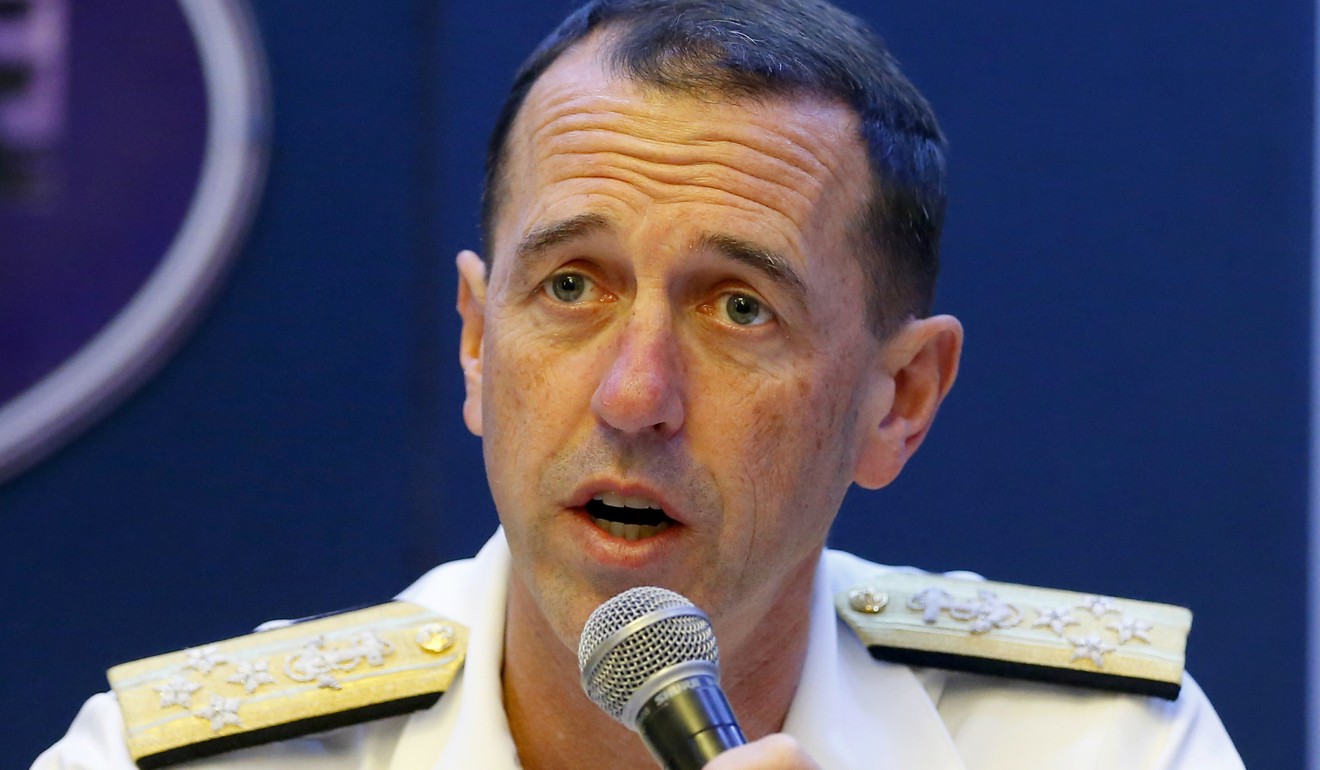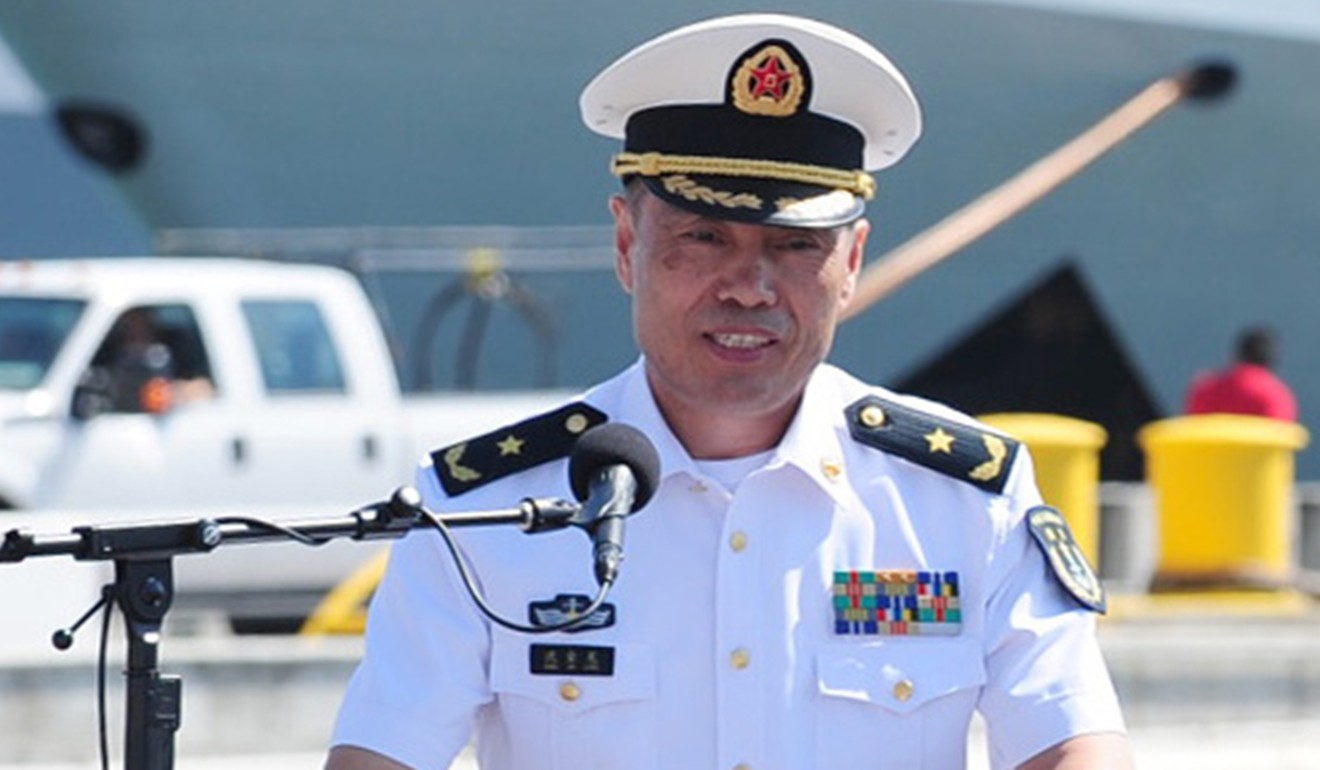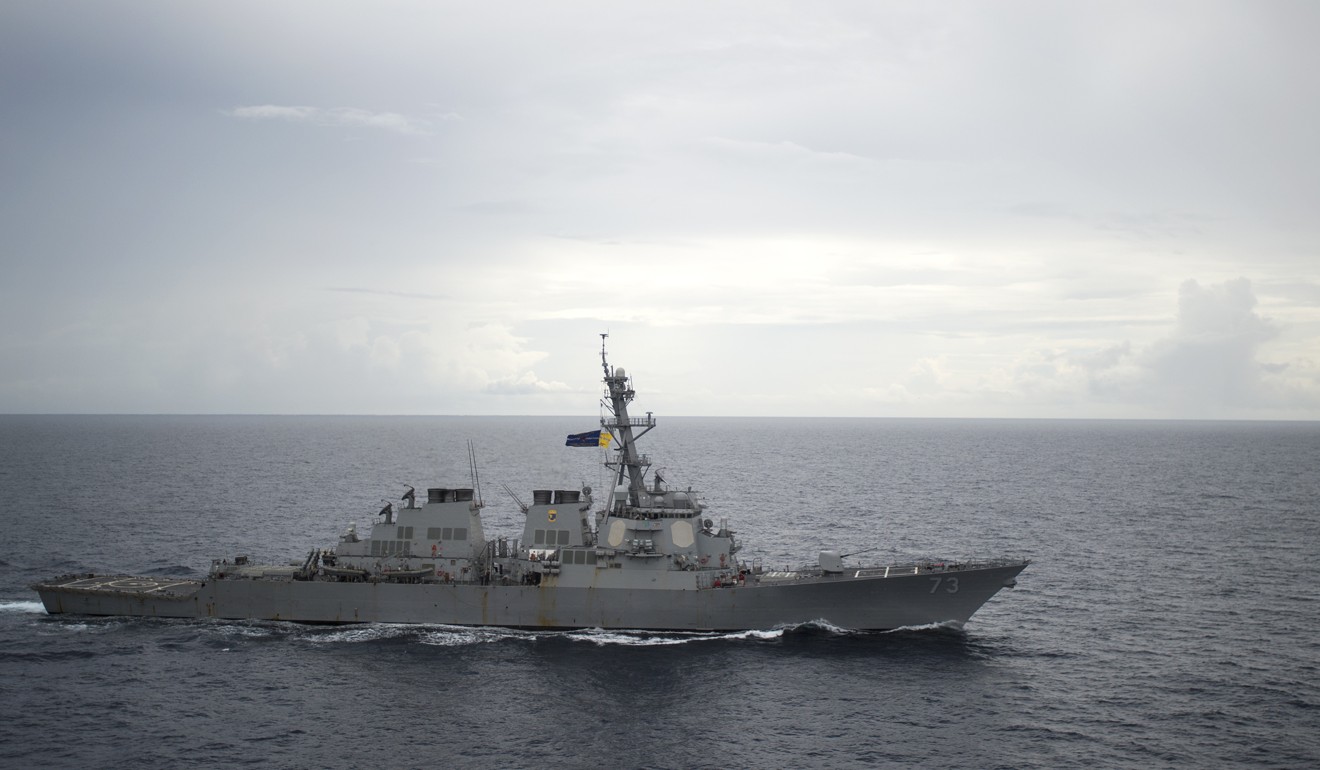South China Sea: Trump military adviser calls for firmer rules to stop near misses
- Admiral John Richardson says US and PLA warships need to keep their distance in disputed waters and avoid action that would escalate into full-blown clashes

One of the US’ most senior military figures and an adviser to President Donald Trump has called for firmer rules governing naval encounters in disputed waters such as the South China Sea, where near misses between warships continue to test territorial claims and rights to “free navigation”.
“Let’s not be obstructing one another, driving our ships in front of one another, throwing obstacles in front of the ship,” Admiral John Richardson, chief of US Naval Operations, said at a meeting of the Atlantic Council think tank in Washington on Wednesday. “Let’s just be biased towards making it easy.”
Richardson said the US should explore new ways to enforce the rules designed to govern encounters between navies and extend them to coastguards and maritime militias, so-called second and third sea forces that Beijing has used to advance its sovereignty claims in the South and East China seas.
The China and US navies agreed to the 2014 Code for Unplanned Encounters at Sea, a non-legally binding accord that was designed to reduce the chances of clashes between naval vessels and military aircraft and prevent maritime tensions from escalating into full-blown conflicts. The navies of 21 nations abide by the code.
Claimants to South China Sea and East China Sea territories such as the Philippines, Indonesia, Malaysia and Japan have long complained that Beijing has used coastguard ships and militia vessels to maintain a presence, although Beijing said these ships and crews were not controlled by the People’s Liberation Army Navy.
Richardson said that a “consistent” US naval presence in the region – one that persisted with what it called “freedom of navigation” exercises into territory claimed by Beijing – plus a rapidly expanding PLA Navy, demanded more ways to minimise the chance of miscalculations between heavily armed warships.

Rules based on a transponder-based automatic identification system could be used to share vital information among ships to avoid collisions, Richardson said.
“So, just putting in some of these enforcement mechanisms makes it harder to play fast and loose with the rules,” the admiral said. “But you’ve got to make a move to enforce those things. I think a lot of that structure exists, it’s just we’ve got to be a little more muscular in enforcing it.”
Richardson’s remarks on “grey zone” or “short of conflict encounters” comes as China and the US are engaged in competition on many fronts. While their rival economies are locked in what some have described as the largest trade war in economic history, there are fears of confrontation over the South China Sea and the status of Taiwan, two issues Beijing regards as its business.
The US is also concerned with flashpoint encounters involving the Russian Navy in the Eastern Mediterranean and the Black Sea.
Richardson said that his January visit to Beijing, when he met with his counterpart, Vice-Admiral Shen Jinglong, and General Li Zuocheng, the PLA’s chief of joint staff, was part of an effort to seek a deeper understanding and minimise the risk of conflict.

“Our thinking is different [yet] we have common interests in many areas. I would say a denuclearised Korean peninsula is an area where we share common interests,” Richardson said. “We have differences – some big differences in terms of how we consider the South China Sea.”
In Beijing, Richardson said, he had emphasised the “consistency” of US policy concerning the South China Sea and Taiwan, the self-ruled island Beijing regards as a breakaway province to be reunited, by force if necessary.

The US had made it clear that militarisation of [South China Sea] islands was a destabilising factor for the world, not just for the region, he said.
“Consistency was a theme in respect to Taiwan,” Richardson said. “Our approach to Taiwan has not changed. We are going to remain consistently focused on that and would not look favourably upon any kind of unilateral action on either side of the strait to disrupt that status quo.”